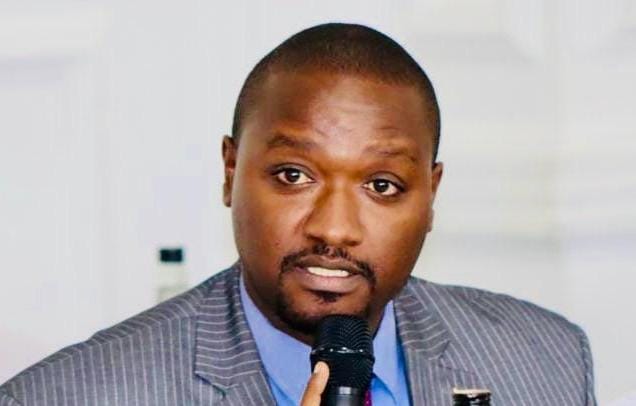NAIROBI Kenya August 2 – A professional national security body to regulate Security practitioners in the country will be established after a petition was lodged before the Senate.
The body would ensure that only qualified individuals are authorized to practice in the security sector.
Dr Andrew Kimani has written to the Senate to enact a legal framework through Parliament to establish the national security body, similar to other professional bodies, to regulate, professionalize, and licence all security practitioners to execute their mandate.
This framework would provide the legal basis for the body’s operations and outline its roles, responsibilities, and governance structures.
He noted that though the Private Security Regulatory Authority (PSRA) is mandated to foster cooperation between private security services and the state, it however does not deal with the players in the national security space, analysts, experts, practitioners.
“PSRA is a state corporation charged with registering private security companies. They however do not deal with players in the national security space and cannot therefore punish or reprimand quacks or set standards,” he stated.
Kimani, a Security studies doctorate holder noted that there are many professional bodies in the country for fields such as medicine, law, engineering, accounting and human resources among others but none to regulate the industry.
“These bodies have Statutory Frameworks, enacted by Parliament, which enable their operation and administration. They also adhere to professional codes of conduct guiding their daily operations,” he noted.
According to Dr Kimani, the security practitioners lack a statutory body to define and regulate their professionalism, conduct, and behavior.
“This gap undermines the overall effectiveness and accountability in the national security sector. A dedicated professional body would standardize practices, ensure continuous professional development, and maintain high ethical standards,” he said.
He added that a dedicated national security body would uphold these principles, ensuring that security practitioners operate with integrity and professionalism.
The body will also introduce standardized examinations or assessments to evaluate the competence of security practitioners seeking licensure. These assessments are to cover technical knowledge, practical skills, and ethical decision-making.
To ensure that licensed practitioners stay updated with evolving security threats, technologies and best practices, the body will be expected to establish requirements for continuing education and professional development.
It is also expected to define mechanisms for monitoring compliance with licensing requirements and enforcing disciplinary actions against practitioners who violate standards or regulations.
Dr Kimani also said through this, strategies to inform the public about the role and importance of licensed security practitioners will be implemented.
It will also ensure that all security practitioners are adequately trained and qualified, leading to improved national security outcomes.
With a regulated body in place, there would be mechanisms to hold security practitioners accountable for their actions, enhancing transparency and public trust.
This will also ensure there is a professional code of conduct for security practitioners to ensure high standards of ethics and accountability. This code would be regularly updated to reflect emerging challenges and best practices in the field of security.
The body will also develop rigorous criteria for licensing security practitioners, including educational requirements, professional experience, and ongoing professional development.
He added that international best practices are key to professionalizing the country’s security, adding that many countries have established professional bodies to regulate their security practitioners, ensuring that their national security services are delivered by highly trained and accountable professionals.
“Kenya must adopt similar measures to stay competitive and secure on the global stage,” he states.
In further justifying the establishment of the body, Dr Kimani said the expanding security space and the introduction of other auxiliary security services globally has seen a rise in the industry, with an influx of these new skills, including criminologists, close protection officers, bounty (bond) hunters, among others.
Dr Kimani says the initiative aligns with several clauses and acts of the Constitution of Kenya.
Articles 238 and 239, for example, emphasize national security and the establishment of security organs, necessitating a professional and regulated approach to security practice.
“These articles underline the importance of having a competent and well-regulated security sector to protect national interests,” he stated.
Article 232, on the other hand, outlines the values and principles of public service, including high standards of professional ethics, accountability, and transparency.
Want to send us a story? Contact Shahidi News Tel: +254115512797 (Mobile & WhatsApp)


